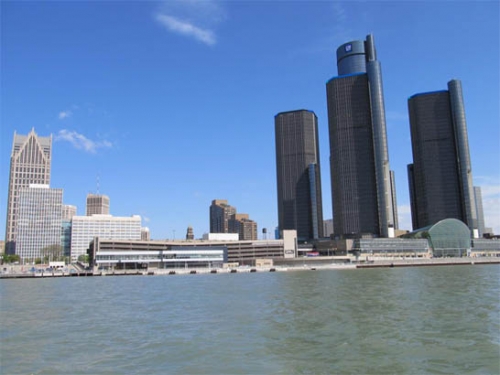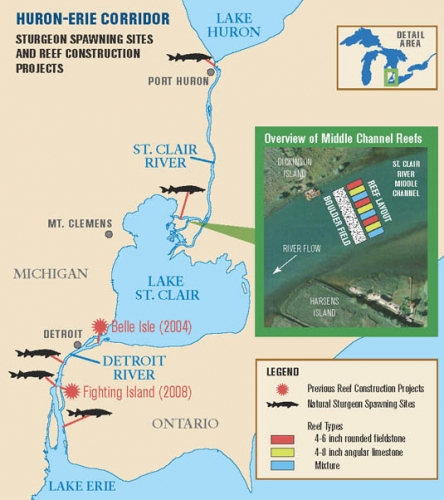Great Lakes Literacy, Principle Six – The Great Lakes and humans are inextricably interconnected
Great Lakes Literacy is an understanding of the Great Lakes’ influence on you and your influence on the Great Lakes. Principle Six focuses on the relationship between the lakes and those who live within their watersheds.
This article is the sixth in
a series of articles discussing what Great Lakes literacy means for residents
of the state of Michigan and the Great Lakes region.
Great Lakes Literacy Principles Four and Five
Great Lakes Literacy Principles Seven
The Great Lakes affect those who live within their watershed in many ways. They supply fresh water to more than 40 million people. They are a
source of drinking water and food, as well as mineral and energy resources. One-third of the North American population lives in the Great Lakes’ watershed, and some
of the most urbanized regions in the United States and Canada can  be found around the lakes.
be found around the lakes.
The Great Lakes are affected directly by the decisions and actions of people in its watershed, which includes parts of Minnesota, Wisconsin, Illinois, Indiana, Michigan, Ohio, Pennsylvania and New York, as well as the Canadian provinces of Ontario and Quebec, and tribal lands.
Local and national laws, regulations and resource management affect what is put into and taken out of the Great Lakes. Shoreline development, as well as industrial or commercial activities, can lead to pollution. Humans have altered the biology of the lakes and the viability of various species through such activities as sport and commercial fish harvesting, introduction of non-indigenous species and nutrient loading.
Coastal regions along the G reat Lakes are impacted by land use decisions and natural hazards. Physical modifications can exacerbate the effects
of erosion, storm surges and lake level changes. To ensure the sustainability of our Great Lakes resources, people who live within the Great Lakes watershed must
realize their role as Great Lakes stewards. Individual and collective actions are needed to effectively conserve and manage Great Lakes resources for the
benefit of all.
reat Lakes are impacted by land use decisions and natural hazards. Physical modifications can exacerbate the effects
of erosion, storm surges and lake level changes. To ensure the sustainability of our Great Lakes resources, people who live within the Great Lakes watershed must
realize their role as Great Lakes stewards. Individual and collective actions are needed to effectively conserve and manage Great Lakes resources for the
benefit of all.
MSU Extension and Michigan Sea Grant are engaged in many educational programs and projects that seek to enhance Great Lakes sustainability. These include education programs designed to prepare the next generation of Great Lakes stewards, such as the Great Lakes Education Program, and habitat restoration projects that improve fishing, birding, hunting and swimming for Michigan residents and tourists.
This article was adapted from Great Lakes Literacy: Essential Principles and Fundamental Concepts for Great Lakes Learning (Ohio Sea Grant, 2010).


 Print
Print Email
Email



